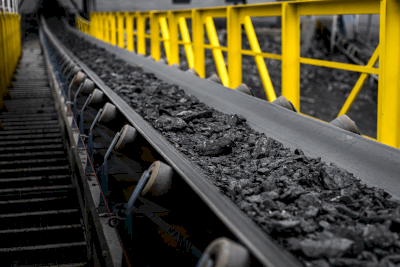What Is a Belt Conveyor?

A belt conveyor is a mechanical system that transports materials using a continuous belt.
It is designed for the efficient and continuous transportation of various types and sizes of goods. Belt conveyors are highly effective for moving large volumes of items quickly and continuously, making them suitable for a broad range of industries and applications. They can also navigate different elevations and angles, accommodating various shapes and sizes of objects.
Regular maintenance of belt conveyors is essential. This includes inspecting belt tension and wear, as well as ensuring the power unit is functioning correctly. Prompt repair or replacement is necessary if the belt is damaged.
Uses of Belt Conveyors
Belt conveyors have diverse applications across various fields:
1. Manufacturing Industry
In the automotive industry, belt conveyors are integral to assembly lines, transporting engine parts, body components, and interiors. They are also used in the assembly and testing lines of electronic equipment, efficiently moving substrates, components, and finished products.
2. Logistics
Belt conveyors are crucial in warehousing for transporting and sorting goods, handling goods during receiving and shipping, and moving products to storage locations. They are also employed in packaging processes.
3. Food Manufacturing and Processing
The food manufacturing industry relies on belt conveyors due to their environmental resistance and ease of cleaning and maintenance, ensuring food safety and cleanliness.
Principle of Belt Conveyors
Belt conveyors operate on the principle of using a durable conveyor belt supported by rollers or pulleys, driven by a power unit like a motor or engine. The drive unit is typically situated at one end of the belt and is selected based on the conveyor length and load.
Tensioning devices maintain proper belt tension for optimal operation and stability. Belt tension is adjusted according to the type of belt and the load being transported.
How to Select a Belt Conveyor
The selection of a belt conveyor involves considering several key factors:
1. The Goods to Be Conveyed
The type and characteristics of the material to be transported are crucial. Larger, heavier items require a stronger drive and a more robust belt.
2. Distance and Speed
The required transportation distance and speed influence the design of the drive and belt. Control systems and speed regulators may be needed for long distances or high speeds.
3. Environmental Requirements
The operating environment impacts the choice of belt materials and protective measures. Considerations include temperature, humidity, chemical exposure, and the need for dust and waterproofing, which may necessitate specific seals and covers.